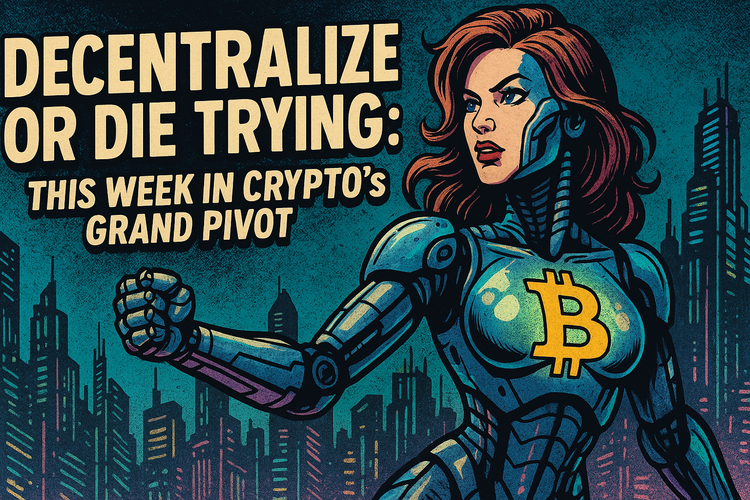The Next Recession May Be Fueled by Crippling Debt and High Interest Rates

The echoes of past recessions often sound warnings for the future. As the world economy braces for another potential downturn, a concerning trend is emerging – the escalating cost of refinancing debt amidst persistently high-interest rates. This dangerous combination could trigger a chain reaction of defaults across mortgages, commercial real estate, and corporate sectors, ultimately leading to a recession.
The Debt Factor
The past few years witnessed an era of incredibly low interest rates. This fueled a borrowing spree as both individuals and companies took advantage of cheap debt to finance everything from homes to business expansion. However, as the Federal Reserve battles persistent inflation with a series of interest rate hikes, the cost of borrowing has risen significantly.
This creates a dire situation for borrowers who need to refinance their existing debt. With interest rates much higher than when the original loans were taken out, refinancing could mean significantly higher monthly payments, potentially leading to widespread financial distress.
The Ripple Effect
1. Mortgage Meltdown
The housing market is particularly vulnerable to rising interest rates. Homeowners who purchased properties with adjustable-rate mortgages or those nearing the end of their loan terms face the prospect of substantially higher refinancing costs. This could force some to default on their mortgages, further depressing housing prices and creating a ripple effect throughout the economy.
2. Commercial Real Estate Crisis
The commercial real estate sector is also heavily reliant on debt financing. With soaring interest rates, refinancing properties becomes increasingly difficult. This could lead to a wave of foreclosures and a decline in property values, further exacerbating economic stress. Additionally, businesses facing higher debt servicing costs may be forced to downsize or scale back operations.
3. Corporate Debt Default
Companies, especially those with high debt levels, are particularly vulnerable to rising interest rates. As their debt matures, they could struggle to refinance at affordable rates. This could lead to increased defaults, causing investors to lose confidence, tightening overall lending conditions, and stifling economic growth.
The Labor Market Connection
The current strong labor market seemingly contradicts the looming recession threat. However, this very strength could contribute to the severity of the downturn. With employment high, the Federal Reserve might feel emboldened to continue raising interest rates to combat inflation. This relentless push for higher rates would increase the debt burden across all sectors. Only when refinancing costs push individuals and businesses into widespread default will the labor market reflect the broader economic crisis.
Preparing for Impact
While the timing and severity of a recession remain uncertain, being prepared is essential.
Individuals
- Know your numbers: Create a detailed list of all your debts, including credit cards, student loans, auto loans, and your mortgage. Note down current interest rates and minimum payments.
- Prioritize high-interest debt: Focus on paying down debts with the highest interest rates first to minimize the overall impact. Consider using methods like debt consolidation or a balance transfer credit card with a 0% introductory APR.
- Build your emergency fund: Aim for 3-6 months of living expenses saved to cover any unexpected financial strains caused by rising interest rates.
- Explore refinancing options early: If you need to refinance a mortgage or other large debts, don't wait until the last minute. Investigate different lenders and compare rates before your current loan term ends.
- Prepare for the worst-case scenario: Create a contingency plan for managing reduced income or potential job loss within your household.
Companies
- Cash flow is king: Prioritize maintaining strong cash flow. Focus on strategies like aggressive collections of accounts receivable, negotiating better payment terms with suppliers, and improving inventory management.
- Restructure debt: Review existing debt arrangements and pursue opportunities to lengthen maturities, reducing looming refinancing pressures. Consult financial advisors to explore if restructuring your debt is a viable option.
- Cut fat, not muscle: Identify and eliminate unnecessary expenses. However, be careful not to sacrifice investments in essential areas like marketing, research & development, and employee training that ensure long-term health.
- Scenario planning: Conduct stress tests across different potential interest rate scenarios. Develop plans for dealing with reduced revenue or tightened credit availability due to a recession.
Investors
- Don't panic sell: Market downturns are often part of the cycle. Avoid impulsive decisions that can permanently lock in losses. Instead, focus on long-term investment strategies.
- Embrace diversification: Spread your investments across a variety of asset classes like stocks, bonds, real estate, and commodities. This helps mitigate volatility and reduce your overall risk exposure.
- Move towards quality: Consider shifting your investments towards companies with strong balance sheets, low debt levels, and a history of weathering economic storms. These offer greater stability during downturns.
- Consider safe havens: In times of turbulence, investors may seek assets like Treasury bonds or gold as safer alternatives amidst market volatility.
- Seek professional guidance: If you are unsure about your portfolio composition or risk tolerance, consult a financial advisor to develop a customized investment plan.
Disclaimer
*The information and analysis provided in this article are intended for educational and informational purposes only and should not be considered as financial, investment, or professional advice. While our team strives to ensure the accuracy and reliability of the content, we make no representations or warranties of any kind, express or implied, about the completeness, accuracy, reliability, suitability, or availability of the information presented.
The content within this article may include opinions and forward-looking statements that involve risks and uncertainties. The blockchain and cryptocurrency markets are highly volatile, and past performance is not indicative of future results. Any reliance you place on the information presented is strictly at your own risk. Before making any investment decisions, we highly recommend consulting with a qualified financial advisor or conducting your own thorough research.
By accessing and using the information provided in this article, you acknowledge and agree that neither the authors, publishers, nor any other party involved in the creation or delivery of the content shall be held liable for any direct, indirect, incidental, consequential, or punitive damages, including but not limited to loss of profits, goodwill, or data, arising out of your use or inability to use the information provided or any actions you take based on the information contained within this section.*





